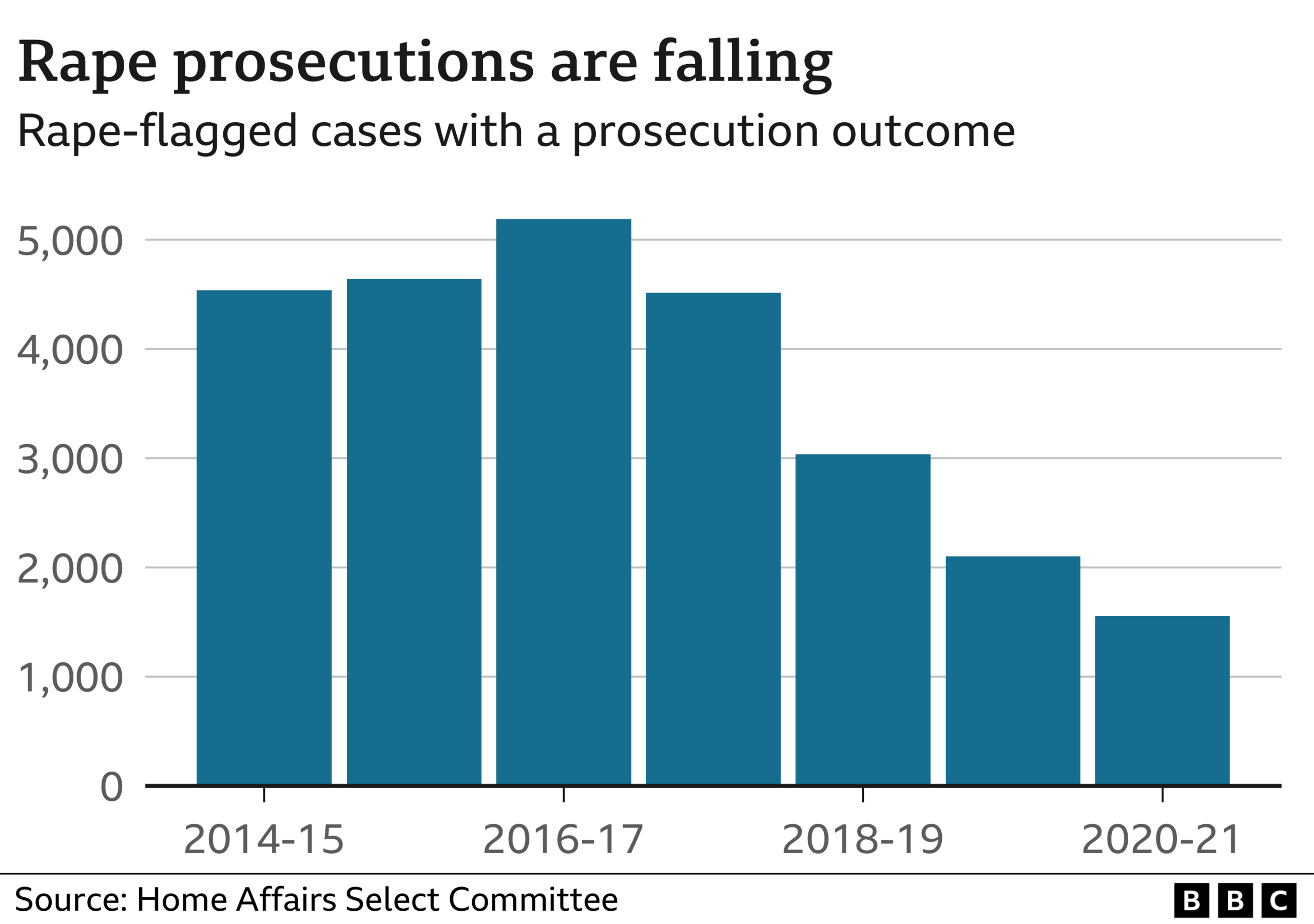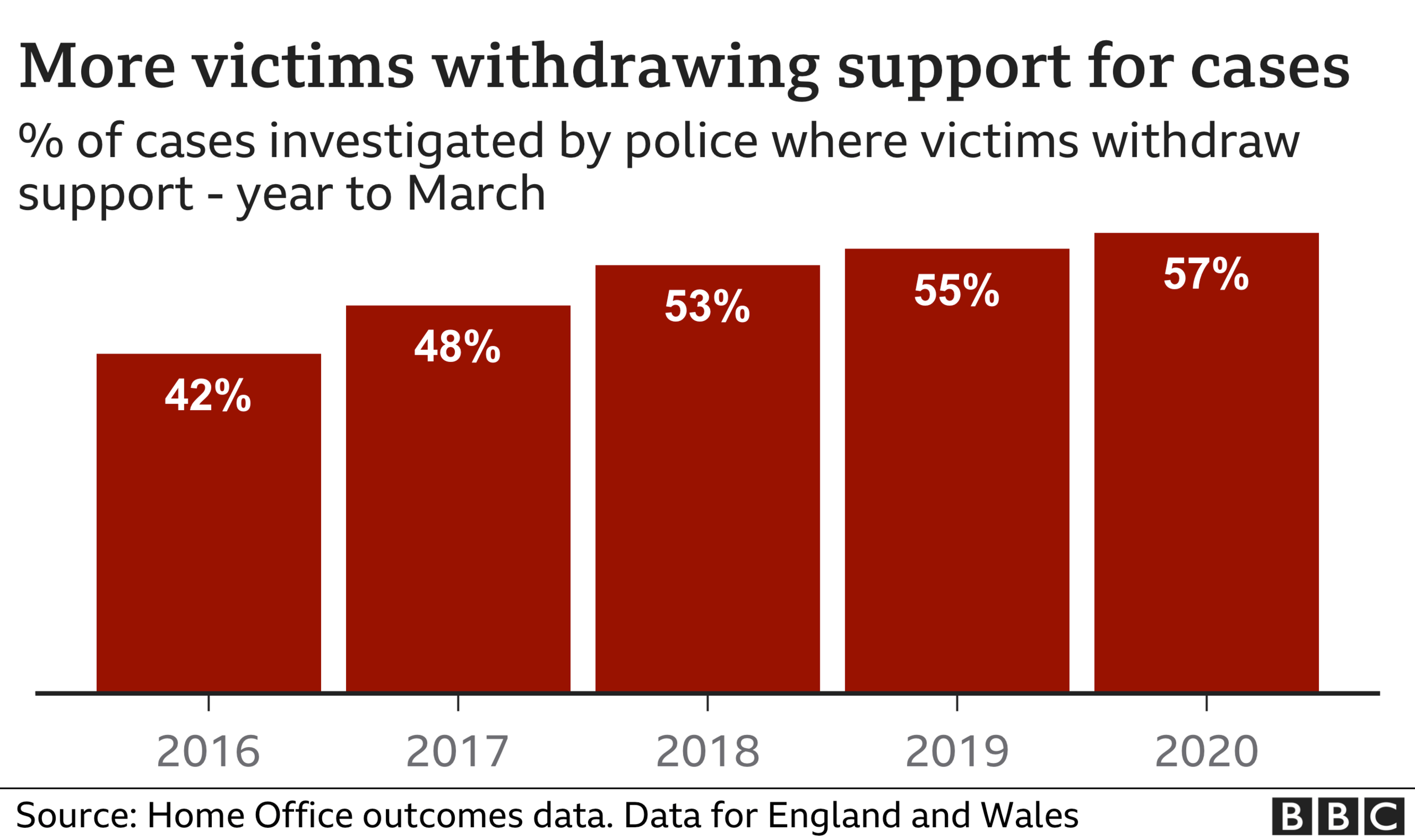New rules to protect sex assault victims' privacy
- Published

Victims of sexual offences have been promised less invasion into their private lives under changes to how evidence is gathered for trials.
Under the new system, ministers say prosecutors and police will have to justify requests to obtain intrusive private information about a victim.
The new rules cover indiscriminate access to information including phone data, social media and medical records.
But campaigners warn the changes could see more access to therapy records.
Under the laws that ensure a fair trial, the police and Crown Prosecution Service in England and Wales must hand over any evidence to a suspect that could help them defend themselves at trial - a legal process known as "disclosure".
To take an extreme example, if detectives knew that a victim's social media messages contained a potential confession that they had made up an allegation against a suspect, they would be under a duty to disclose that information.
But, in practice, critics say that the disclosure process has led to increasingly lengthy and expensive dives into the private data of victims of sexual offences - effectively massive fishing expeditions.
In some cases, investigators seek a complainant's therapy records or even, in the case of younger victims, information from schools.
Today's new rules from the Attorney General's Office, which oversees prosecutions, aims to stop such indiscriminate searching by requiring investigators to provide a clear written justification for any proposed deep dive into personal information, including records held by others such as therapists.
Alongside that measure, the Crown Prosecution Service has declared it won't stop rape or other victims seeking psychological therapy before a trial begins - a significant clarification of its policy.
In some cases prosecutors have told victims to delay therapy because they believe it could damage their recollections and evidence.
Campaigners have long wanted to see that stance change - but now they are predicting that the two measures taken together risk back-firing.

The End Violence Against Women coalition (EVAW) said the overall package would increase the likelihood that prosecutors could see victims' private therapy notes and ultimately hand them to the defence.
It says that until now those notes could only be disclosed if they contained information that would clearly undermine the prosecution or support the defence .
But EVAW's lawyers say the test in the new rules would mean therapy records could be inspected purely because they might be relevant.
That would increase the likelihood of the notes being handed to a defendant, ultimately discouraging victims from seeking early and vital therapy.

Rebecca Hitchen, head of policy for EVAW, said: "Scrutinising therapy notes in a courtroom strips them of their context and sends a message loud and clear that it is survivors who are on trial, rather than the men who raped them.
"We cannot understand the motive behind a move which will undoubtedly cause significant additional trauma to women and girls going through the courts while deterring others from accessing support.
"This guidance has been two decades in the making - it is unacceptable that the CPS have chosen to ignore legal precedent and issue guidance that will prevent survivors from accessing life saving therapeutic support."
A spokesperson for the Attorney General's Office said: "There will be rare but genuinely necessary cases where material is required in the interests of justice.
"To stop invasive and disproportionate requests for victims' private information during criminal investigations, we have imposed rigorous requirements for prosecutors and investigators in the guidelines.
"This will ensure that third-party material such as therapy notes and medical records are only sought where appropriate, proportionate and balanced with the right to privacy."
Your device may not support this visualisation
I
- Published30 June 2022

- Published27 May 2022

- Published25 April 2022

- Published12 April 2022
